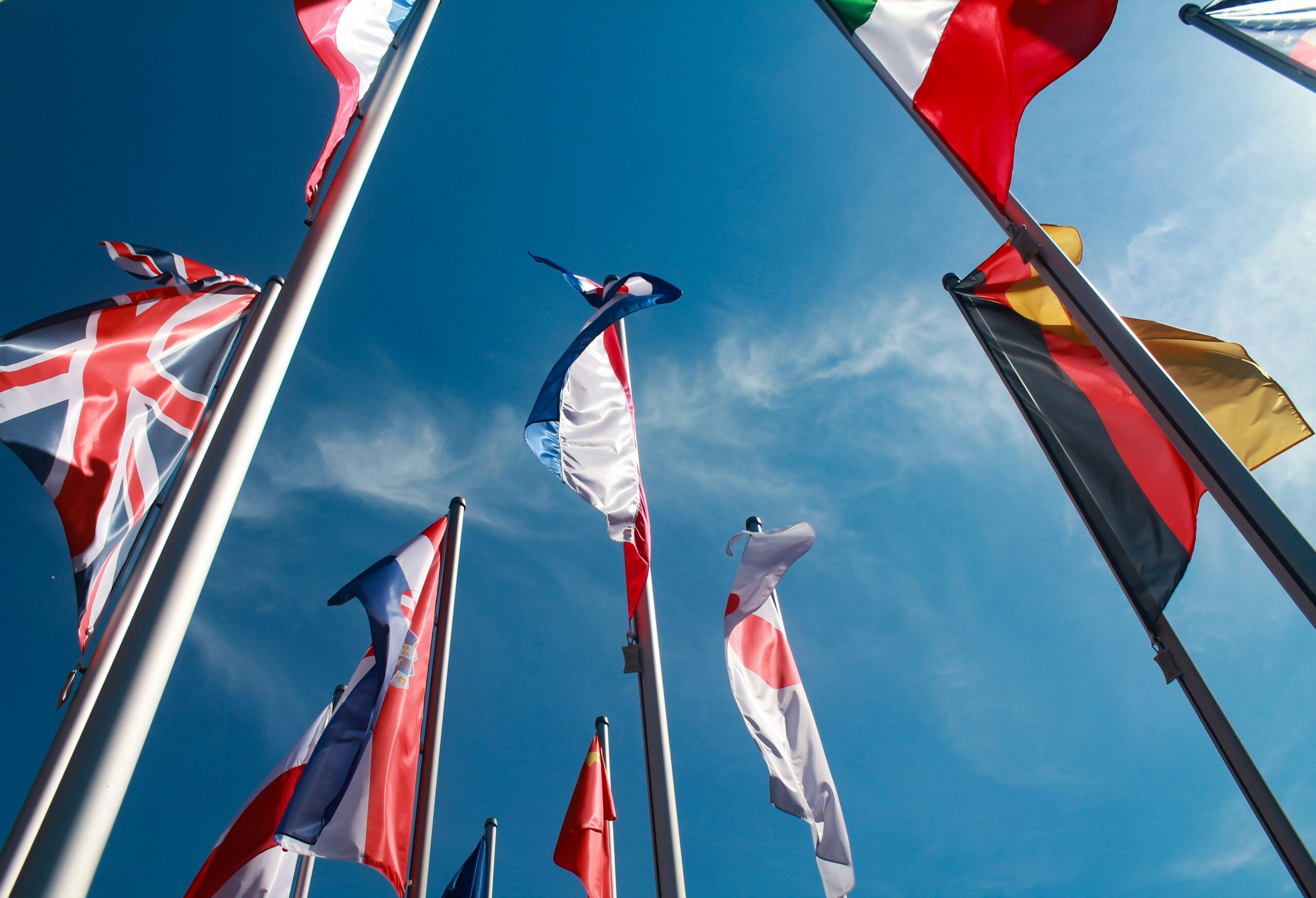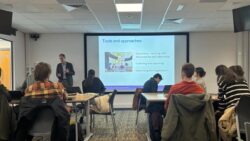Diplomat for a Day: Lessons from Leeds’ Own Climate Diplomat

As part of the Priestley Climate Scholars programme, I was given the opportunity to take part in a masterclass with Leeds alum Daniel Bradley, who is now Head of UK Climate in the Mission to the EU, during his recent visit to the University.
Prior to the workshop, I attended a seminar presented by Dan where we were given a whistle-stop tour around the role of politics and policy in navigating EU climate and the Green Transition. Dan highlighted shared challenges for the UK and the EU, and provided an inside perspective on the EU’s current policy approach, recent narrative shifts and challenging external and internal contexts. I am currently studying for a PhD in Glaciology, based in the School of Geography, and whilst I am growing my experience in policy through the climate scholars programme, it is an area I know very little about at present.
Dan’s introduction to the current climatic political landscape was very accessible and engaging. I also now better understand Nationally Determined Contributions (NDCs); a part of the Paris Agreement where countries submit climate action plans to the United Nations to reduce greenhouse gas emissions, and why these targets should be ambitious in order to limit global warming, encourage global action, and work towards a sustainable, low-carbon future.
Diplomat for a Day workshop
The next day, during the workshop, Dan reflected on his pathway into policy, which, like me, started with a PhD in the Geography department at Leeds! He outlined his day-to-day life as a climate diplomat, and the tools and approaches he uses to speak to countries’ representatives about why climate should be a priority for them.
The story you tell and the lens through which you frame climate is extremely important, as different countries have different mindsets and viewpoints. He explained how centring on an issue or opportunity that is important to a country and then eventually linking it to climate afterwards can be a great way of contextualising the value of tackling climate change along with other political challenges, in order to meet their current goals in a better, more sustainable way.
For example: a clean transition to a low carbon economy could be framed as the ‘economic opportunity of the century’, as the sector is growing quicker than the regular economy, and provides additional, people-centred benefits such as innovation, job opportunities and revitalising older, decentralised economic hubs. Alternatively, depending on the audience, the narrative of ‘the longer you leave it, the more expensive it gets’ may be more appropriate.

Dan also showed us the importance of finding points of connection between representatives and countries. This included finding a balance between listening and learning, and projecting and influencing. We were given the opportunity to try this out ourselves, during a ‘Miliband meets…’ activity where we were given the roles of UK climate diplomats preparing Ed Miliband, the UK’s Secretary of State for Energy and Climate Change, for a ministerial visit to a pre-COP meeting.
We had each been assigned the countries Miliband would be meeting before the workshop, and were given 30 minutes in groups to write a short briefing that would be handed to Miliband before he met with a delegate from that country. Dan provided an overview and structure of a typical brief, which includes:
- a steer
- objectives
- points to make
- defences and
- background.
Ministers may only have 30 seconds (!) to read a briefing before a meeting, so it was important to be very precise and clear, synthesising information into direct bullet points. These would then inform the minister how to act – should they ‘raise’ a question, ‘praise’ the work of the country, ‘probe’ into an issue etc...? This style of writing was completely different to academic writing, or even policy briefing notes such as POSTnotes that I had written before – condensing and prioritising information into a short set of actions is very difficult!
The masterclass was a fantastic experience of what it like to be a climate diplomat for a day, and I have come away with a new understanding of how to manage complexities and conflicts in climate policy (and climate research).
Dan provided an honest and insightful reflection of his career as a climate diplomat, highlighting how rewarding and sometimes frustrating it can be, but ultimately how important it is to have diplomats embedded in local contexts when making political climate decisions. Before the workshop I had no real understanding of climate diplomacy, but it was fascinating to see how this job translates and communicates research into policy and has real-world impact, and to see it done so well by a Leeds alum!
Thank you Dan, for taking the time to visit and sharing your experience.

Blog written by Hannah Barnett, PhD researcher in Glaciology, School of Geography.
Hannah is a Priestley Climate Scholar, a professional development programme focused on bringing together climate researchers from different disciplines from across the university. Find out more about the Priestley Climate Scholars programme.
Featured image by Sebastiano Piazzi on Unsplash.
